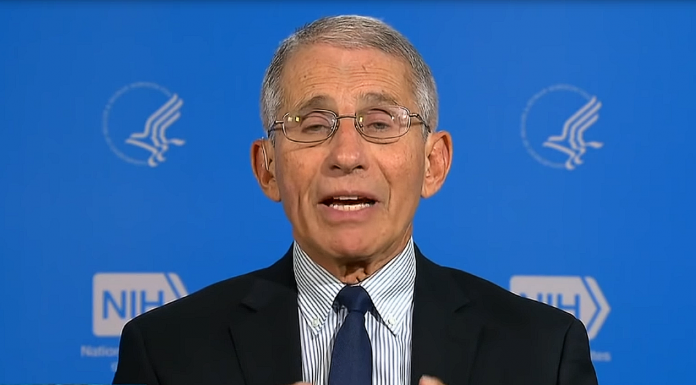Dr. Anthony Fauci is the highest-paid of the nearly 4 million federal employees in the U.S. government, including the president.
Fauci, the director of the National Institute of Allergy and Infectious Diseases and current chief medical adviser to the president, made $417,608 in 2019, according to Forbes.
He will have made $2.5 million in salary from 2019 to 2024 if he stays on as President Joe Biden’s chief medical adviser. And that doesn’t even account for potential raises he may get during that period.
Between 2010 and 2019, Fauci made $3.6 million in salary, Forbes reported. His pay has gradually increased over the years from $335,000 to $417,608, which is $17,608 more than the presidential salary.
His returns may not end there, however. Industry insiders have noted that Fauci may personally reap the rewards of several patents for the research that his government agency oversees.
In May, whistleblower Judy Mikovits accused Fauci of being among those who poached her research into the AIDS-causing human immunodeficiency virus in order to take credit for—and profit from—a groundbreaking report.
Among his more recent undertakings, Fauci had been a vocal advocate for “gain of function” research—including the cross- pollination of coronaviruses and other airborne diseases within bats.
He characterized the potentially lucrative—albeit controversial—field as a risk worth taking in a 2011 Washington Post article.
“[D]etermining the molecular Achilles’ heel of these viruses can allow scientists to identify novel antiviral drug targets that could be used to prevent infection in those at risk or to better treat those who become infected,” he said.
And even after the potential for lab accidents led the Obama administration to impose a moratorium on the research, Fauci continued funneling of millions of American tax dollars into the Chinese field-work being conducted at the Wuhan Institute of Virology.
Despite the apparent conflicts of interest, Fauci has remained one of the leading figures on the White House’s coronavirus team, regularly conducting media interviews and appearing on magazine covers.
However, he recently complained that he felt muzzled by former President Trump, and praised Biden for giving him a “liberating feeling.”
“Obviously, I don’t want to be going back over history, but it was very clear that there were things that were said, be it regarding things like hydroxychloroquine and other things like that—that really was uncomfortable because they were not based on scientific fact,” Fauci claimed during a press conference last week.
The cheap and readily available drug used for treating maladies like malaria and lupus has been a source of constant debate, although anecdotal evidence has continued to point to its potential efficacy in COVID patients as part of a particular treatment regimen.
Fauci’s opposition may have been linked to his financial investments in other rival treatments such as the China-backed remdesivir.
Since his emancipation from Trump, Fauci has continued to knock his former boss in several interviews over the past week.
On Monday, he told CNN that he was extremely worried Trump’s suggestion that disinfectant could be used against the coronavirus would lead people to harm themselves.
“I just said, ‘Oh my goodness gracious.’ I could just see what’s going to happen,” he explained. “You’re going to have people who hear that from the president and they’re going to start doing dangerous and foolish things, which is the reason why, immediately, those of us who were not there said, ‘This is something you should not do.’ Be very explicit.”
The only known report of anyone taking Trump’s medical advice literally was an Arizona couple who undertook to self medicate with a type of hydroxychloroquine used as fish-tank cleaner.
The pair were later discovered to be linked with a “pro-science” left-wing activist group and a long history of filing tort lawsuits for financial gain.
After the husband died from the poisoning, Phoenix-area police subsequently announced that the wife was under criminal investigation.
Headline USA’s Ben Sellers contributed to this report.

